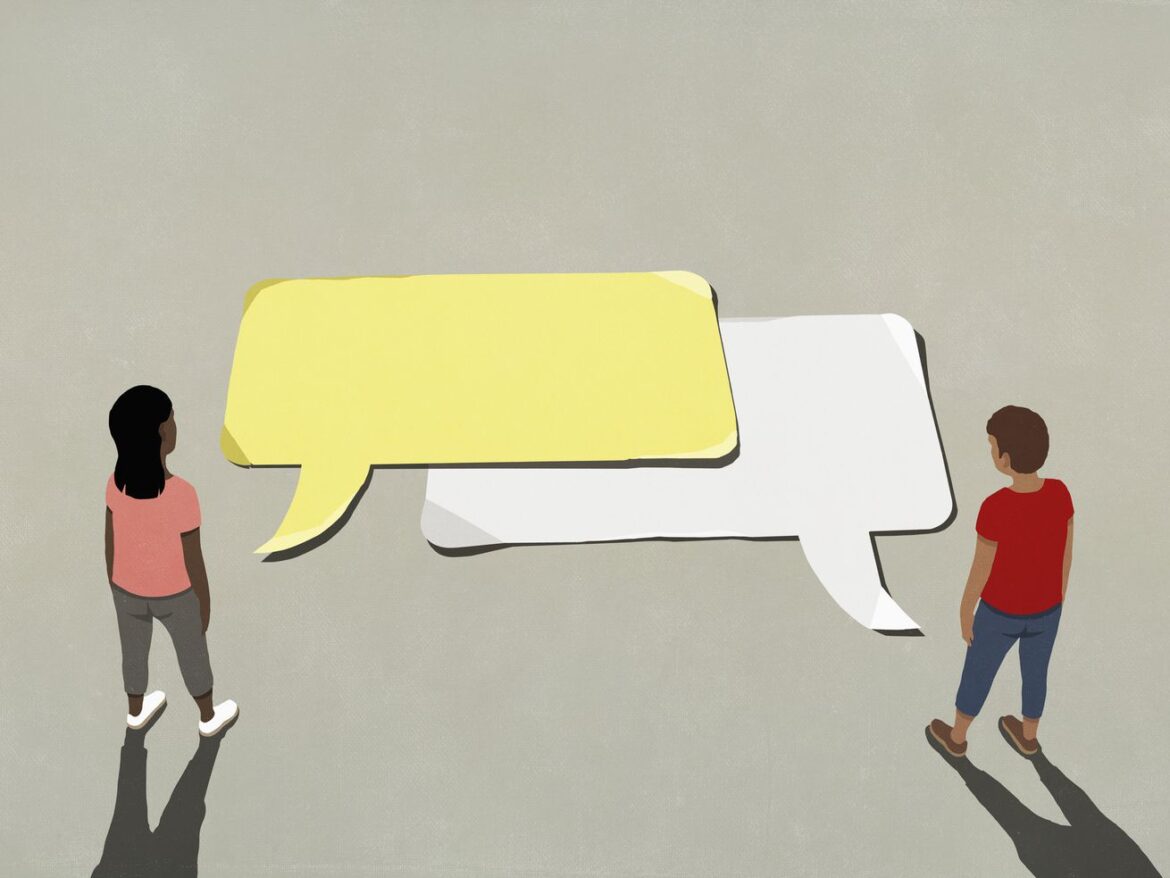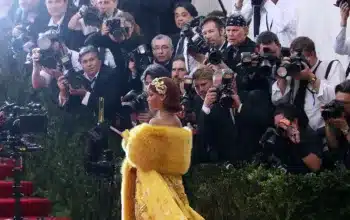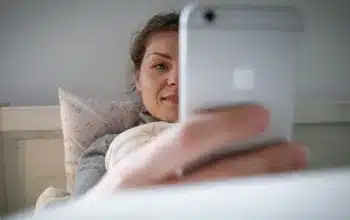What we miss when we don’t pay attention to others.
Are you a good listener?
Most of us probably believe we listen to people all the time. But how much of what we think of as “listening” is really just some form of active hearing where we’re waiting for our turn to say something clever or funny or thoughtful?
That’s not really listening. At best it’s a rough approximation, but one that falls short in some crucial ways. The truth is that most of us are quite good at acting like we’re listening. We nod affirmatively and say “uh huh” and “yep” and “for sure.” Sometimes we even bust out the fake laughter to paper over a little bit of awkwardness when we need to.
We do these things when people are talking because we know it signals the right thing. It’s polite. But deep down we’re in our own heads. We’re thinking about ourselves or God knows what. In other words, we’re not listening.
To the extent that this is common, and maybe even increasingly common, what price are we paying? What are we losing by listening less and less? To find out, I spoke with Kate Murphy, a journalist and the author of the book You’re Not Listening: What You’re Missing and Why It Matters. This book approaches listening through a cultural and scientific lens, and it expresses how critical listening is to being a human. It’s a few years old but it’s as relevant today as it was when it was first published.
Below is an excerpt of our conversation, edited for length and clarity. As always, there’s much more in the full podcast, so listen and follow The Gray Area on Apple Podcasts, Google Podcasts, Spotify, Stitcher, or wherever you find podcasts. New episodes drop every Monday and Thursday.
Sean Illing
How do we know when someone is actually listening to us and how do we know when they’re not?
Kate Murphy
I think the hallmark of when someone’s listening is how they respond. The questions that they ask, the little details they pick up on. It’s this wonderful dance, and so if you’re moving one way and the other person is standing still, or going way off at another tempo, you know it. We’re not dancing right now.
Sean Illing
I don’t know about you but I hate cocktail parties.
Kate Murphy
Oh, I love them though.
Sean Illing
Oh God. I hate them, and I’m super uncomfortable with them. I always felt most out of place when I moved to DC when I was at some sort of function like that. And I guess the reason I hate it is I’m not good with small talk.
It always feels like an exercise in non-listening to me. In these sorts of exchanges, you hear questions like “What do you do?” or “Where are you from?”
It’s the start of this perfunctory exchange where you’re going through the programmed motions and it seems like no one’s really listening; everyone gets that we’re all here to sort of grease the tracks, as it were, and mingle and network or whatever, but it’s not really listening.
I’m sure there are exceptions, and I’m not saying everyone is an asshole at a cocktail party. It’s what you do in these sorts of environments, but it’s not really listening, right? Or am I being too cynical about that?
Kate Murphy
No, you’re not at all. You’re picking up exactly what it is when people ask you those types of questions — “What do you do?” “Do you have any kids?” “What part of town do you live in?” They’re not really wanting to get to know you or understand you. They’re trying to rank you in the social order.
Sean Illing
Yes.
Kate Murphy
They don’t really wanna listen to you. They just wanna put you in the right file folder and move on. It isn’t a moment of humanity where you’re really trying to get to know one another.
And when I say I love cocktail parties, it’s because I love watching that. I find it fascinating because you learn so much about the other person because everybody is just waiting for your lips to stop moving. What they’re waiting for is to do their PR pitch to you about who they are.
The thing I love about it is to get people off script: Who really are you? I know you, this is what you do, and these are your kids, and this is where you went on vacation.
But to really ask them questions where you start having a meaningful conversation. For me, it’s just like, wow, look at all these people here, and they all have good stories if you ask the right questions. Anybody that you think is boring, you haven’t asked the right question.
Sean Illing
What’s your trick? How do you get people to open up to you? How do you let them know, “Hey, I’m actually here, I’m listening to you”?
Kate Murphy
Making that eye contact. Your eyes aren’t on your phone, you’re not looking around the room to see who’s more important. You’re not twitchy when you’re talking to them.
Part of it’s just being relaxed, but also ask them stuff about themselves, but not those ranking questions that we were talking about.
You’re all there because somebody invited you. Find out now, how do you know the host or the hostess? That’s a story, and it leads to another story, which leads to another story. I always just notice stuff about other people. Get out of your own head and your own nervousness. If they have a piece of jewelry on, every piece of jewelry has a story behind it, you know, even if they got it at a flea market. That’s interesting. What flea market? Do you often go to flea markets? Stuff like that, or, my mom gave it to me or an old boyfriend, we’re not dating anymore. And then you get that whole story and it’s always fascinating, but it’s really not hard.
Sean Illing
You say that you’re suspicious of people who are convinced of their own rectitude; certainly one barrier to listening is being drunk on your own righteous bullshit. It’s hard to listen to anyone when you think you’ve already got everything figured out. And on some level, you can’t really listen until or unless you’ve suspended judgment.
I heard you talk about this in another interview that you did. You were commenting on the lack of pauses in conversations. Especially in our culture. And boy, that really is a sign that no one’s listening.
Because if you are really listening, you’re not thinking about what you’re gonna say when someone’s talking. You’re just listening. Therefore, when they’re done talking, you need a second to reflect on that. And if you’ve already got your speech ready, at the hip, then you know they were just waiting for their turn. Apparently that’s a very American thing.
Kate Murphy
It is. They’ve done studies in many different cultures. Western cultures were the most guilty of it.
Sean Illing
Why is that?
Kate Murphy
I think it’s because, going back to this [idea of] hospitality, in Asian cultures, there is this idea of serving the other person first and being hospitable to the other person. Culturally, it’s seen as rude to jump in immediately and boast. In places like Finland, it’s really seen as rude that you would automatically jump in, like you are too big for your britches. And there is this sense of anxiety of not wanting to lose face.
The quickest way you can lose face is to open your big mouth without having listened to what’s going on. so there is this hesitation before saying anything. That can go too far, of course, but, to me as a journalist, if you’re just quiet, the person will keep talking and usually it’s taken them this long to really figure out what they wanted to say. The most important nugget is what comes in the end after you just allow them to really put their thoughts together and maybe overcome their anxiety and also really figure out, okay, she is listening.
There’s so many things you’re not hearing because of how you present yourself in the conversation. Or the questions you don’t ask are the things you don’t pick up on or don’t notice by being a poor listener. And it really impoverishes you as a human being, but also in your relationships. Listening is everything in terms of human relationships.
You’re Not Listening: What You’re Missing and Why It Matters by Kate Murphy is available now.



